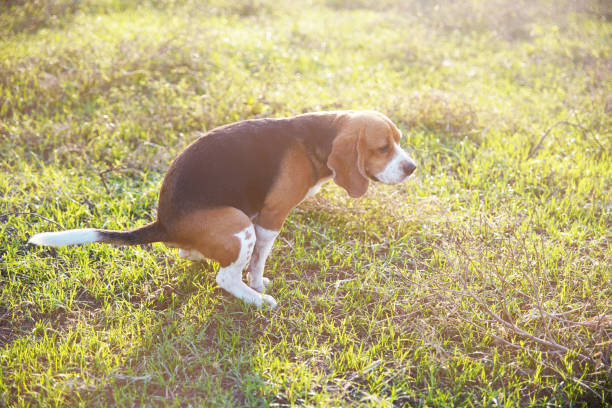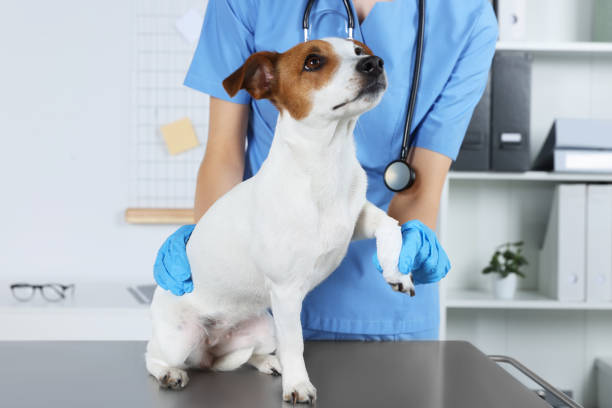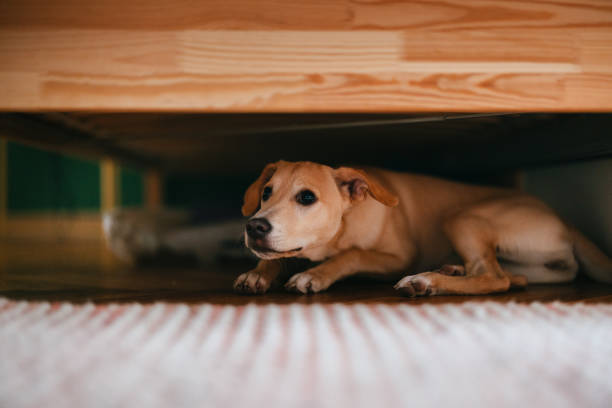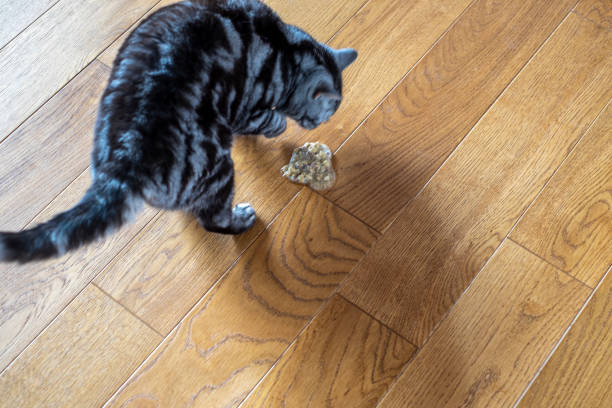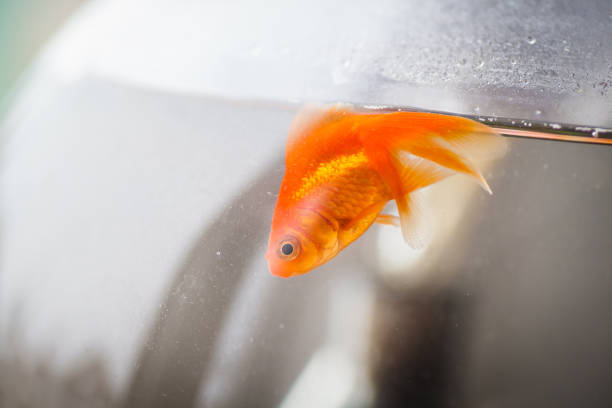Dog Diarrhea: Causes, Treatment & When to See a Vet
It’s hard not to worry when your dog suddenly comes down with diarrhea. You walk in, spot the mess, and immediately start thinking about what went wrong. Maybe they ate something odd during your last walk, or could it be something more serious? Seeing your furry friend uncomfortable is never easy, especially when they’re not eating, acting off, or worse, you notice blood in their stool. No one likes to feel helpless in moments like that.
The good news is, dog diarrhea often clears up on its own with a little care. But you can’t always assume it’s just a minor upset. Sometimes it drags on for days, other times it comes with signs that feel like a real emergency. Knowing the common dog diarrhea causes treatment options, and the signs that need a vet’s attention can save you a lot of stress. You’ll also learn some simple home remedies, how to help a puppy with diarrhea, and tips like using a bland diet to calm their stomach. If you’ve been trying to figure out when to wait and when to worry, this guide will walk you through it all with clarity.
Quick Assessment Guide
Act Immediately If You Notice:
- Dog diarrhea with blood and other symptoms: If you see blood in the stool along with vomiting, weakness, or shaking, don’t wait it out. This could point to an infection, poisoning, or something worse.
- Vomiting alongside diarrhea: When your dog can’t keep food or water down and also has diarrhea, dehydration becomes a real risk fast.
- Dry gums, sunken eyes, or extreme tiredness: These are signs of dehydration. These dehydration symptoms are similar to other serious conditions. A dehydrated dog might also refuse food, move less, and look generally unwell. Learn to recognize signs of pain in senior dogs which can also include lethargy and behavioral changes.
- Yelping or reacting to belly touches: If your dog shows pain when you gently press the stomach, it could signal severe digestive trouble that needs a vet right away. Recognizing pain signals is essential for all dog owners. Learn more about signs of pain in senior dogs to better understand when your pet needs immediate attention.
Safe to Monitor at Home:
- One-off loose stool but acting normal: If your dog has a single runny poop but is still playing, eating, and drinking, it’s okay to watch for a bit.
- Mild diarrhea without blood: Occasional soft stools without any blood or major behavior changes can settle with rest and care.
- Still eating and drinking well: If your dog is eating and drinking normally despite the loose stools, you can try simple steps like a dog diarrhea bland diet to help their tummy settle.
Acting fast when things look serious can make all the difference. If it’s mild, dog diarrhea home remedies might help. But when the situation feels off or the dog diarrhea lasting days, it’s safer to call the vet. This is even more important if it’s a young pup, since puppy diarrhea what to do often needs quicker attention. A vet can also help spot chronic dog diarrhea causes early before things get worse.
Common Causes Behind Dog Diarrhea
Dietary Causes
Food is often the first place to look when diarrhea strikes. A sudden change in dog food, sneaking table scraps, or getting into the trash can all upset a dog’s stomach. Dogs have sensitive digestive systems, and rich or fatty foods can trigger loose stools quickly. Even treats that seem harmless might lead to an upset tummy if your dog isn’t used to them. If your dog is not eating after such incidents, their body might be reacting to the unexpected food.
Stress-Related Triggers
Dogs thrive on routine. Moving to a new house, the arrival of a new pet, a stay at a boarding facility, or any shift in their daily life can cause enough stress to upset their stomach. Reducing stress through engaging activities can help prevent digestive upset. Try these DIY dog mental stimulation activities at home to keep your dog mentally balanced and less prone to stress-related diarrhea. Stress can lead to temporary diarrhea, especially if combined with excitement or anxiety. If it’s a puppy, diarrhea can appear after big changes like weaning or adjusting to a new home. If you’re wondering about puppy diarrhea what to do, reducing stress and keeping routines steady often helps.
Parasites and Infections
Intestinal parasites such as roundworms, hookworms, and giardia are common culprits, the Centers for Disease Control and Prevention provides detailed information about parasites that can affect both pets and humans through contaminated environments, especially if your dog drinks from puddles or contaminated water. Infections from bacteria like salmonella can also cause diarrhea with vomiting or blood in the stool. Dog diarrhea with blood can be alarming and is usually a sign to call the vet for dog diarrhea emergency signs.
Medical Conditions
Ongoing or recurring diarrhea could be linked to deeper medical problems. Conditions like inflammatory bowel disease, food allergies, liver disease, or even cancer can be behind chronic dog diarrhea causes. UC Davis School of Veterinary Medicine provides detailed research on inflammatory bowel disease diagnosis and treatment protocols. If you notice dog diarrhea lasting days despite home efforts like a dog diarrhea bland diet or dog diarrhea home remedies, it’s time for a professional check-up.
Emergency Warning Signs
Call your vet right away if you notice any of these signs. These are not things to wait out or try dog diarrhea home remedies on. The American Veterinary Medical Association emphasizes that severe diarrhea symptoms require immediate professional evaluation to prevent life-threatening complications. Quick help can prevent a bad situation from getting worse.
- Blood in the diarrhea: Bright red or dark, tarry-looking stool means there could be internal bleeding. Dog diarrhea with blood should never be ignored.
- Vomiting combined with diarrhea: When both happen together, your dog loses fluids quickly, which can lead to dehydration fast. According to VCA Animal Hospitals, dehydration can become life-threatening in dogs within hours, especially in puppies and senior dogs.
- Dry gums, sunken eyes, or skin that stays pinched: These are signs of dehydration. If your dog is not eating or drinking, the risk of dehydration is even higher.
- Lethargy or extreme tiredness: A dog that suddenly becomes weak, slow, or uninterested in things they usually enjoy needs medical help.
- Fever symptoms: If your dog feels hot to the touch, especially around the ears, is panting heavily, or shivering, these can point to a fever.
- Abdominal pain: Watch for a hunched back, crying when touched, or refusal to move. This could mean severe digestive issues.
- Diarrhea lasting more than 48 hours: If diarrhea doesn’t stop within two days, even with a dog diarrhea bland diet, it could suggest chronic dog diarrhea causes that need vet care.
These are classic dog diarrhea emergency signs, especially in puppies. If you’re unsure about puppy diarrhea what to do, a vet visit is the safest choice.
Home Treatment Options
When your dog has a mild case of diarrhea but still seems playful, alert, and willing to drink water, trying a few home treatments can help settle their stomach. It’s important to watch them closely during this time, especially to make sure things don’t get worse. If your dog starts showing dog diarrhea emergency signs, like refusing water or acting weak, skip the home care and call your vet.
Fasting Period
The first step is giving their digestive system a little break. You can hold off on feeding for about 12 to 24 hours. This short fasting period helps clear out whatever might be upsetting their gut. But don’t ever fast puppies under six months old. Puppy diarrhea what to do is different because younger dogs can’t go without food for long. No matter the age, fresh water should always be available to prevent dehydration.
Introducing a Bland Diet
Once the stomach has had time to rest, you can slowly introduce food again with a dog diarrhea bland diet. Simple, gentle foods work best, like:
- Boiled chicken breast with plain white rice
- Boiled ground turkey with rice
- Plain canned pumpkin puree (not pie filling)
These foods are easy to digest and help firm up stool. The American Kennel Club recommends this approach as a first-line treatment for mild digestive upset in otherwise healthy dogs. If the diarrhea doesn’t improve or you notice dog diarrhea with blood or dog diarrhea lasting days, it could point to chronic dog diarrhea causes needing vet care. Dog diarrhea home remedies are helpful, but they can’t replace professional treatment when things don’t improve.
Bland Diet Feeding Guide for Soothing Dog Diarrhea
A bland diet is a simple but effective way to help your dog’s stomach settle after diarrhea. If your dog is acting normal and staying hydrated, this method can help firm up their stools without rushing to the vet. But if you see dog diarrhea emergency signs or the diarrhea is lasting days, get professional help instead.
Days 1-2 – Start the Bland Diet
- Boil skinless, boneless chicken breast or lean ground turkey until fully cooked.
- Cook plain white rice separately until soft and fluffy.
- Mix the meat and rice in a ratio of 25 percent protein to 75 percent rice.
- Offer small portions every 3 to 4 hours throughout the day.
- The total amount fed should match their usual daily food amount but spread into smaller meals.
Days 3-5: Adjust the Protein Balance
- Increase the protein to 50 percent of the mixture.
- Keep serving small, frequent meals.
- Watch for firmer stools before moving forward.
Day 6 and Beyond: Reintroduce Regular Food
- Mix 25 percent regular dog food with 75 percent of the bland diet.
- Increase the regular food by another 25 percent each day.
- Complete the transition over 4 to 5 days while monitoring digestion.
If your dog is not eating, showing signs of dog diarrhea with blood, or you’re unsure about puppy diarrhea what to do, skip this and contact your vet. Chronic dog diarrhea causes often need more than dog diarrhea home remedies.
Special Considerations for Puppies with Diarrhea
Diarrhea in puppies is always a reason to call the vet right away. Unlike adult dogs, their tiny bodies can’t handle the rapid fluid loss that comes with diarrhea. Dehydration can set in fast, sometimes within hours, Veterinary Emergency Group notes that puppies under 6 months are at highest risk for rapid deterioration from diarrhea-related dehydration, especially if there is vomiting or the puppy is not eating. Their immune systems are still growing, so even mild diarrhea can quickly turn into something serious. If you’ve been searching for puppy diarrhea what to do, the safest answer is to let a vet check them immediately. Waiting it out or trying dog diarrhea home remedies at this stage is too risky.
It’s also important to know that fasting is never safe for puppies under six months old. They need steady nourishment to support their growth, even when their stomach is upset. A vet will know the right treatment based on the puppy’s age, weight, and the cause of the diarrhea. If there’s dog diarrhea with blood, weakness, or the puppy looks tired and refuses to eat or drink, those are clear dog diarrhea emergency signs. Puppies are too fragile to handle trial and error at home. If you’re considering adding a puppy to your family, understanding health care requirements is essential. Learn about choosing the right pet for busy families to ensure you can provide proper care during health emergencies. Quick treatment not only clears the diarrhea but also prevents long-term issues linked to chronic dog diarrhea causes.
Managing Chronic Diarrhea in Dogs
When diarrhea keeps coming back or lasts longer than a few days, it may be a sign of something deeper than a simple stomach upset. At this point, home treatments or a dog diarrhea bland diet may not be enough. Chronic diarrhea needs a vet’s help to figure out what is really going on inside your dog’s body. It can be tricky to tell the cause without tests, especially when symptoms like dog diarrhea not eating or weight loss start to show. Weight loss and appetite changes can indicate multiple health issues. Understanding signs of pain in senior dogs helps identify when digestive issues might be connected to other underlying conditions.
Inflammatory Bowel Disease
One common cause is inflammatory bowel disease. This condition keeps the digestive tract inflamed, leading to repeated diarrhea, loss of appetite, and sometimes weight loss. Managing this condition usually involves a prescription diet made for sensitive stomachs, medications to reduce inflammation, and regular check-ins with the vet. Without proper care, this can easily become one of the serious chronic dog diarrhea causes.
Food Allergies and Sensitivities
Food allergies or sensitivities can also trigger ongoing diarrhea. Research from Tufts University Cummings School of Veterinary Medicine shows that food allergies affect approximately 10% of dogs with chronic digestive issues. Some dogs react badly to certain proteins like chicken or grains. An elimination diet, supervised by a vet, can help figure out which foods are causing trouble. While dog diarrhea home remedies may seem helpful at first, they won’t fix allergies or conditions like these. If your dog keeps having dog diarrhea lasting days or shows dog diarrhea emergency signs, it is time to get professional help.
How to Prevent Diarrhea in Dogs
Keeping your dog’s stomach happy starts with simple daily habits. A consistent feeding schedule with good-quality dog food makes a big difference. Switching foods too quickly can upset their stomach, so always introduce new food slowly over a week or more. This helps their body adjust without causing sudden loose stools.
It’s also smart to avoid giving table scraps, no matter how tempting it is when they beg. Human food can be too rich or fatty, leading to digestive upset. Keep trash and anything they might snack on outside out of reach to prevent surprises that lead to diarrhea.
Regular parasite prevention is another smart move. Parasites are a common cause of diarrhea, especially when dogs drink from dirty water or play in contaminated areas. Managing stress levels helps too, since changes in routine can trigger stomach issues. Stress management is crucial for overall pet health. These DIY dog mental stimulation activities at home can help reduce anxiety-related digestive problems while providing mental enrichment. If you’re already dealing with dog diarrhea causes treatment at home, prevention steps like these can reduce repeat cases. They can also lower the risk of dog diarrhea with blood, or even chronic dog diarrhea causes that need a vet’s help.
When It’s Time to Call the Vet for Dog Diarrhea
Deciding when to visit the vet can feel tricky, but watching your dog’s behavior makes it easier. Here’s a simple way to figure it out.
Schedule a routine vet visit if:
- Diarrhea lasts 2 to 3 days but your dog still eats and plays normally
- The loose stool started gradually without other signs like vomiting
- Your dog is young, healthy, and has no past digestive problems
Contact the vet the same day if:
- You see dog diarrhea with blood or vomiting at the same time
- Your dog is showing signs of dehydration like dry gums or tiredness
- The diarrhea is happening in a puppy or an older dog. Senior dogs may be more susceptible to digestive issues due to underlying health conditions. If your older dog experiences recurring diarrhea, consider natural joint pain relief methods for senior dogs as joint pain medications can sometimes contribute to stomach upset.
Get emergency vet help if:
- Diarrhea is severe, bloody, and your dog seems very weak or collapses
- You think they ate something toxic or swallowed a foreign object
- Vomiting is nonstop, with no sign of relief
The American Animal Hospital Association provides guidelines for recognizing true veterinary emergencies versus urgent care situations.
Quick treatment can prevent chronic dog diarrhea causes from developing. Early intervention saves money and prevents suffering. Avoid these common first-time dog owner mistakes that lead to expensive vet bills by recognizing when professional care is necessary. For puppy diarrhea what to do, always ask the vet before trying dog diarrhea home remedies or a dog diarrhea bland diet.
Common Treatment Options Vets Use for Dog Diarrhea
When you visit the vet for dog diarrhea causes treatment, the first step is usually finding out what’s really going on inside your dog’s body.
Diagnostic Testing
Vets often start with tests like blood work, stool checks, or even imaging like X-rays. These help spot infections, parasites, or other issues that simple dog diarrhea home remedies can’t fix. Testing is especially important if there’s dog diarrhea with blood, your dog is not eating, or the diarrhea is lasting days without improvement.
Medication Options
If parasites like roundworms or giardia show up, the vet will give deworming medicine. Sometimes antibiotics or anti-inflammatory drugs are prescribed when an infection or intestinal irritation is causing trouble. Anti-diarrheal meds may also be used, but only under the vet’s guidance since wrong use can make things worse instead of better.
Prescription Diets
For ongoing or severe cases, vets might suggest a special prescription dog food designed to be gentle on the stomach. These diets are often more effective than a regular dog diarrhea bland diet, especially when dealing with chronic dog diarrhea causes.
This professional approach is even more important for puppy diarrhea what to do or if your dog shows dog diarrhea emergency signs.
How to Monitor Your Dog’s Recovery After Diarrhea
Most dogs start feeling better within 3 to 7 days once the right treatment begins. During this time, it’s important to keep a close eye on how they’re doing. Watch their energy levels, appetite, and stool consistency each day. You should start seeing small improvements within the first 48 hours. If the diarrhea is lasting days with no change or gets worse, contact your vet right away.
Stick with the dog diarrhea bland diet until their poop looks normal again and stays that way for at least 24 hours. This helps avoid upsetting their stomach again too soon. Once things look steady, you can slowly start mixing in their regular food over several days. This gentle shift helps prevent the cycle from repeating.
If your dog is not eating, acting weak, or shows dog diarrhea with blood, it could point to dog diarrhea emergency signs that need vet care. Chronic dog diarrhea causes need close monitoring even after recovery to catch any signs early. For puppy diarrhea what to do, always let the vet guide the recovery plan to keep them safe.
Final Thoughts
Most diarrhea episodes resolve with simple home care and patience. By recognizing emergency signs, implementing appropriate treatment measures, and knowing when to seek professional help, you can confidently manage your dog’s digestive health.
Remember that mild, brief episodes are common and usually not cause for panic. Trust your instincts, monitor closely, and don’t hesitate to contact your veterinarian when in doubt about your dog’s condition.
